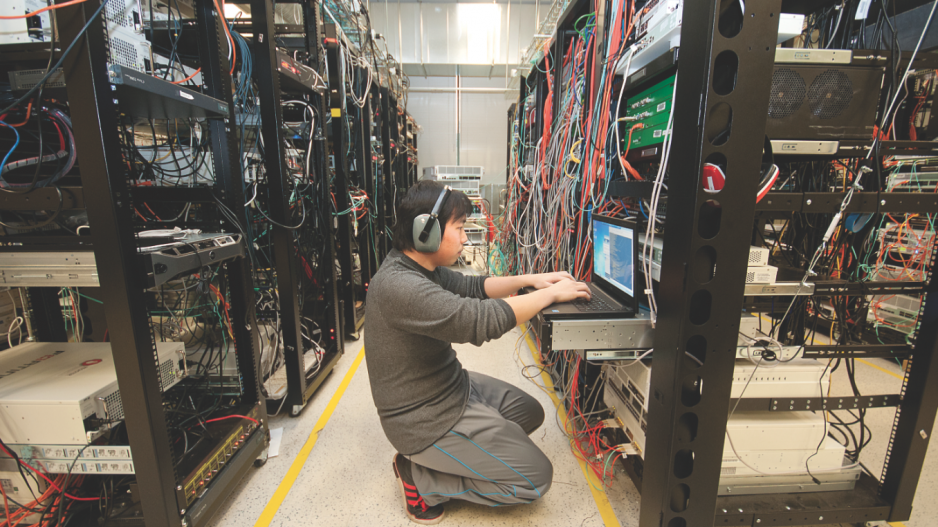Zooming in on grainy surveillance footage and using software to turn pixelated video into a high-def experience is what Alexander Fernandes calls the “CSI effect.”
“The fantasy is that you can enhance the video. That’s not true,” said Avigilon’s (TSX:AVO) CEO, adding that surveillance experts can’t create something out of nothing if the information is not there.
So when he founded his Vancouver-based surveillance company 11 years ago, Fernandes was determined to design “lossless” recording equipment that could read licence plates and identify faces decisively.
An incident like the November 13 terrorist attacks in Paris raises public awareness of surveillance technologies, but Fernandes said at-risk venues like stadiums or nuclear power plants already take a proactive approach to security.
“Video analytics, simply put, is the future of security,” he said.
Avigilon’s high-resolution cameras and software now operate across 60,000 client sites globally, analyzing behaviour patterns of people being recorded to determine if any early warning alerts should be sent out.
For example, most people will walk from point A to point B when they’re in a parking lot.
But Avigilon’s software can differentiate between animals, vehicles and a person wearing a backpack who might be meandering through that lot in a way the system determines to be suspicious.
“Most other surveillance products are simply passive,” Fernandes said.
Derek Manky, a global security strategist at Burnaby-founded Fortinet (Nasdaq:FTNT), said detecting a cybersecurity threat well in advance is critical to putting clients at ease in the event of an emergency.
“We can’t just live in a reactive world,” he said.
While Fortinet has been developing security protocols for enterprise-level computer systems for 15 years, Manky said discussions about how to mitigate and deal with risks are only now entering the boardroom.
In the wake of targeted data breaches against companies like Sony Pictures or Toronto-based online dating service Ashley Madison, he said more executives are waking up to these threats and devoting resources to prevent them from occurring in the first place.
“What we do on our side is build in protection that we’ll push out to the customer based off the nature of the attack,” Manky said. “It basically stops new waves of attacks while also providing advice based off of what’s currently happening.”
But if and when an emergency event such as an earthquake or a terrorist attack occurs, B.C. tech companies are also developing software to deal with the fallout.
Kamloops-based Truvian collects data during disasters to track damage, build maps and relay that information to decision-makers in real time.
Meanwhile, WPS Disaster Management Solutions rolled out a mobile app earlier this fall to assist property management companies with evacuations in the event of a bomb threat or a mass shooting.
“What it all comes down to with emergency preparedness is being able to enhance safety while reducing your due diligence or liability,” said Kait Huziak, ePlan Advantage specialist at Langley-based WPS.
She said the company experiences regional spikes in interest whenever an emergency situation unfolds in a community. But an event like the Paris attacks won’t necessarily translate into more B.C. businesses looking to develop disaster plans with WPS.
“Because as much as we do have a global connectedness,” Huziak said, “there’s the mindset of ‘Oh, that may not happen to me.’"




